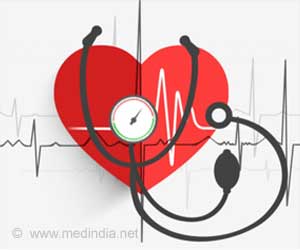According to a study it was found that physicians do not change the treatment for patients suffering from uncontrolled hypertension. But it is also found that hypertension leads to cardiovascular risks.
The findings were presented in New York City at the 21st Annual Scientific Meeting of the American Society of Hypertension (ASH 2006) for the CONTROL PROJECT study group by Dr. Antonio Coca of the Hypertension Unit at the Hospital Clinic of the University Of Barcelona, Spain. ‘The results show that there is a significant lack of concern among primary care physicians about the importance of hypertension treatment in patients at high risk of cardiovascular disease,’ he said.The CONTROL PROJECT was a cross-sectional, national multi-center study in Spain that followed 1,413 patients with treated and uncontrolled hypertension seen by 356 primary care physicians. The patients, just over half of them women (55.2%), with a mean age of just over 65, were assessed according to European Society of Hypertension 2003 guidelines.
A majority of them were judged to be at either very high (34.5%) or high (29.4%) cardiovascular risk, with a high prevalence of associated cardiovascular risk factors such as overweight (53.7%), hyperlipidemia (52.2%), diabetes (39.5%) and family history of cardiovascular disease (15.7%). In addition, one-fifth of the patients (20.3%) had left ventricular hypertrophy (enlarged hearts) and more than one-in-ten (12.8%) had microalbuminuria, an indicator of subclinical cardiovascular disease.
Despite having blood pressure that was not controlled with treatment (blood pressure higher than 140/90 mmHg or higher than 130/80 mmHg in diabetics), 41.6% of the patients were still treated with just a single antihypertensive drug, and less than half of their primary care physicians (45%) recommended a change in their treatment, either increasing the dose of the single drug being taken (17.55%) or adding an additional drug and/or prescribing a fixed combination compound (35%). Nearly one-in-three of the primary care physicians (30%) considered that no change was required, and nearly two-thirds (65%) suggested improving compliance to non-pharmacological changes such as diet and exercise. And, only about half (56%) of the physicians asked patients to come in for a new control visit within 2-3 weeks.
Source: Newswise











